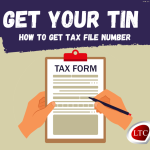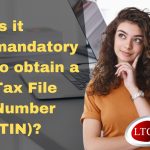
ESC is levied under ESC Act No.13 of 2006 [as amended by the ESC (Amendment) Act No.15 of 2007, No.11 of 2008, No.16 of 2009, No.11 of 2011, No.11 of 2012, No.6 of 2013, No. 9 of 2014, No.13 of 2015 and No.7 of 2017, respectively].
CHARHEBILITY
Every person or partnership carrying on or carrying out any trade, business, profession or vocation, is required to pay ESC at specified rate, on the relevant turnover of any relevant quarter (any quarter commencing on or after April 2016), subject to limitations, reliefs and exemptions provided, as described as elaborated below.
Relevant turnover:
Relevant turnover of any relevant quarter is the aggregate turnover, for that relevant quarter, of every trade, business, profession or vocation carried on or exercised by such person or partnership in Sri Lanka, whether directly or through an agent or more than one agent.
However, prior to 01.04.2016, if the Taxable Income for the Y/A immediately preceding any Y/A (current) had been greater than zero, the relevant turnover of any quarter falling within that Y/A, other than any such turnover relating to any exempt profits, was equal to zero.
The basis adopted in ascertaining the relevant turnover, in respect of which ESC is charged, has been changed with effect from any quarter commencing on or after 01.04.2016. Accordingly, the relevant turnover for any quarter of any Y/A is simply the turnover from any trade, business, profession or vocation, of that quarter, irrespective of whether there is no taxable income from that source in the Y/A preceding to the Y/A in which such quarter falls; or there is any exempt income in the Y/A in which such quarter falls.
ESC (amendment) Act No. 07 of 2017 provides that the ‘Relevant Turnover’ for any quarter of any Y/A commencing on or after April 1, 2016 will be the ‘turnover of that quarter’ within the meaning of ESC Act.
Turnover:
The turnover from any trade, business, profession or vocation carried out by any person or partnership for any relevant quarter means “the total amount received whether actually received or not, from every transaction entered into in that quarter (in the course of such trade, business, profession or vocation) after deducting there from the turnover of the followings:
- VAT (if registered)
- Sale of Capital assets
- Bad debts incurred (Recovery should be added)
- Sale of foreign currency denominated sovereign bonds
- Sale of Treasury bills or Treasury bonds, purchased out of funds drawn from any Treasury Bond Investment External Rupees Account.
- Proceeds from the sale of any clay roof tile or pottery product by any manufacturer of such product
- Funds voted by Parliament from the Consolidated Fund or any loan arranged by the Government of Sri Lanka, for the provision of any service, free of charge by any public corporation on behalf of the Government (effective from 01.04.2013)
- Proceeds from the sale of any organic fertilizer by the manufacturer of such product (effective from 01.04.2013)
Threshold:
Effective from 01.04.2016, the quarterly threshold or liable limit of relevant turnover has been brought down to Rs. 12.5 Million. Prior to that revision, the relevant turnover of a Quarter had to exceed Rs.50 Million for ESC liability.
Maximum ESC:
The ceiling of ESC chargeable for a quarter ended prior to 01.04.2016 is Rs.30 Million. This ceiling has been removed for any quarter commencing on or after 01.04.2016.
Accordingly, in relation to any period commencing on or after that date, ESC is payable without any upper limit on the quantum computed based on the relevant turnover
Turnover of Banks, other financial institutions and pawn brokers:
In the case of a bank (including any financial institution or a pawn broker), the receipt by way of, or on account of, interest, discount, dividends, exchange, service charges, commissions, brokerage or any other income derived by the bank in the course of its business is deemed to form part of the turnover of such bank.
Turnover of a person carrying on the Business of Insurance:
In the case of a person carrying on insurance business, the insurance premia received, or receivable, in respect of the following is deemed not to form part of the turnover of that person.
- Premia on life insurance; and
- Premia on insurance against damages or destruction by strike, riot, civil commotion or acts of terrorism and paid into the consolidated fund.
Turnover of special categories of businesses:
However, provisions have been made by regulations, made by the Minister and published in the respective Gazette orders in terms of section 12 of ESC Act, for the application of special definitions of turnover in respect of certain categories of businesses (on optional basis). The Gazettes Extraordinary No 1502/10 dated 20.6.2007, 1506/06 dated 18.07.2007 and 1546/9 dated 22.04.2008 provide for such special definitions in relation to certain categories of businesses,to be applicable on an optional basis to compute ESC at 1% (or effective from the quarter commencing from April 1, 2012 at the rate specified in schedule III of ESC Act – 0.25%) without considering a turnover threshold for the liability.
[It should be noted that the ESC rate had now been raised to 0.5% (effective from April 1, 2016). A fresh Gazette Notification appears to be necessary to make the position in order].
Such businesses and the manner of reduction of turnover are given below:
- Freight Forwarders – The turnover reduced by any sum payable in that quarter by the Freight Forwarder to any person on account of the carriage, by such person, of any cargo loaded into any ship or aircraft owned or chartered by such person is treated as the relevant turnover.
- Gem and Diamond exporter – The turnover of any person or partnership who is an exporter of cut and polished diamonds from rough gems or diamonds imported to Sri Lanka in uncut form, is the excess of that quarter of the FOB value of such exports over the CIF value of such rough gems or diamonds.
- Export of garments or any other article by any manufacturer out of raw materials imported on NFE basis – Exports of garments or any other article manufactured from materials imported on NFE basis is the excess of that quarter of the FOB value of such exports over the CIF value of such materials.
- Sale of securities held by Primary Dealers – Turnover is the excess of proceeds of sale of securities held by primary dealer over the aggregate of sum invested in that quarter in the purchase of securities and the interest paid or the discount allowed by such primary dealer in relation to any repurchase transaction entered into in that quarter.
PERSONS NOT LIABLE
The following persons are not liable to pay ESC:
- Any registered Co-operative Society within the meaning of the Co-operative Societies Act No.5 of 1972 or under the respective statute enacted by a provisional council provides for such registration;
- any person carrying on business as an owner or chatterer of an aircraft or ship;
- any Government Institution or Local Authority as defined in the Inland Revenue Act No.10 of 2006;
- any Distributor (Distributor, in relation to any manufacturer or producer of any goods in Sri Lanka, means any person or partnership appointed by such manufacturer or producer for the sale in the wholesale market of such goods, at such price as may be determined by such manufacturer or producer, from time to time);
- any Dealer in Lottery;
- any Unit trust or mutual fund;
- The Central Bank of Sri Lanka(CBSL) for the period April 1, 2013 – March 31, 2016. [CBSL has been excluded from the meaning of ‘person’ for ESC purposes w.e.f April 1, 2013 and included W.e.f April 1, 2016 making liable to ESC].
ESC ON RETAIL SALE OF PETROLEUM PRODUCTS
Retail sale of petrol, diesel or kerosene is liable to ESC on a concessionary terms, if the aggregate turnover from such items including lubricants and others exceeds the threshold of Rs.50 Million for any quarter of the Y/A commencing prior to 01.04.2017 or of Rs.12.5 Million for any quarter of any Y/A commencing on or after 01.04.2017.
If the relevant turnover exceeds the respective thresholds, ESC is calculated on 1/10th of the relevant turnover from the retail sale of petrol, diesel or kerosene, effective from 01.04.2016.
ESC on other relevant turnover (from lubricants and others) is computed on the basis of their actual turnover.
ESC RATE
ESC rate has been raised (from 0.25%) to 0.5% of the relevant turnover effective from 01.04.2016.
Accordingly, the manner of application of the rate is getting revised as follows:
(i) On 10% of the relevant turnover from the retail sale of petrol, diesel or kerosene – 0.5%
(ii) On any other relevant turnover [i.e. other than turnover referred to in (i) above] – 0.5%
SET OFF OF ESC AGAINST THE INCOME TAX PAYABLE
ESC paid is allowed to be set off against income tax payable subject to a limit. With regard to ESC paid by any person for any quarter ended prior to 01.04.2016, such set off could be made against the income tax payable by him for the year of assessment within which such quarter falls. Any balance of such ESC could be apportioned to next succeeding 4 consecutive years of assessment, and set off against income tax payable for the respective years. Such 4 year period could span beyond 01.04.2016.
As per the ESC (amendment)Act No. 07 of 2017, ESC paid for any quarter commencing on or after 01.04.2016, after setting off against income tax payable for the year of assessment within which such quarter falls, any balance can only be apportioned only to next following 2 years of Assessment.
ESC paid in advance
ESC is charged in advance on the import of certain specified articles based on their CIF value without considering any threshold. These articles (and respective effective dates) are as given below:
(i) Articles liable to Special Commodity Levy under Act No. 48 of 2007 (SCL), effective from 01.04.2016
(ii) Gold or other precious metals, effective from 24.11.2016
(iii) Motor vehicles effective from 01.04.2017.
CIF values of respective articles are as certified by the Director-General of Customs. The advance payment of ESC made at the Customs in relation to those articles by any person (importer) can be set off against the actual ESC liability by such person for the Y/Ain which such advance is paid.
Any excess of the advance ESC cannot be refunded, but can be credited against income tax payable by such person, in the manner that ESC paid is normally set off against income tax payable (subject to 2 year apportionment rule).
RETURNS AND PAYMENTS
Returns should be furnished annually effective from the Y/A 2011/12,on or before the 20th day of the month immediately following the end of that Y/A, and the payments should be made quarterly, on or before the 20thof the month immediately following the end of every quarter of that Y/A.
ASSESSMENTS
Provisions similar to income tax are applicable in making any assessment or an additional assessment of ESC.
In case, the Assistant Commissioner does not accept the return of a taxpayer and making an assessment or additional assessment, he is required to communicate reasons in writing as to why he is not accepting such return.
Where a person has furnished the return for any quarter in an Y/A within the stipulated time specified in the ESC Act and the return of income for that Y/A has been furnished on due dates, an assessment or additional assessment cannot be made after the lapse of 18 months from the 30th day of November immediately succeeding that year of assessment.
If the return is not received on or before the respective dates, an assessment or an additional assessment cannot be made after 4 years from that date.
ESC Notices






![VAT & SVAT Registration requirements for Tea, Rubber, and Coconut Suppliers – SEC/2024/E/01 [04 Jan 2023]](https://lankataxclub.lk/wp-content/uploads/2024/02/Can-Tea-Rubber-and-Coconut-Suppliers-get-SVAT-150x150.jpg)




